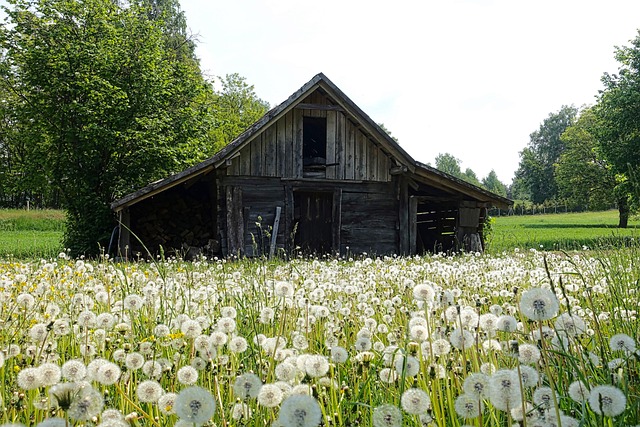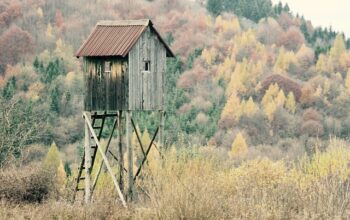When considering a backyard shed, start by assessing your specific storage needs, choosing a suitable size and design, and selecting materials for year-round protection. Prioritize durable materials like high-quality steel or aluminum for longevity against weather and foot traffic. While traditional wood sheds offer natural beauty, modern options like vinyl and fiberglass provide sleek durability and aesthetic flexibility. Balance environmental impact by exploring eco-friendly materials like recycled plastic or certified sustainable wood, ensuring your backyard shed blends harmoniously with nature.
Backyard sheds are not just storage solutions; they enhance outdoor living spaces. When choosing materials for your outdoor storage shed, understanding your specific storage needs and considering durability is paramount. Traditional options like wood and metal have long been popular for their aesthetics and cost-effectiveness. However, modern alternatives such as vinyl and fiberglass offer enhanced durability and low maintenance. This article explores top materials, weighing factors like longevity, environmental impact, and design to help you select the perfect material for your backyard sheds.
- Understanding Your Storage Needs for Backyard Sheds
- Material Durability: A Key Factor in Outdoor Structures
- Traditional Choices for Backyard Sheds: Wood and Metal
- Modern Options: Vinyl and Fiberglass Sheds
- Environmental Considerations: Eco-Friendly Materials for Outdoor Storage
Understanding Your Storage Needs for Backyard Sheds
When considering an outdoor storage shed for your backyard, understanding your specific storage needs is paramount. Think about what items you’ll be storing and how much space they require. Are you looking to house gardening tools, outdoor furniture, or perhaps seasonal decorations? Each item has different dimensions and weight, so assessing the capacity of your shed beforehand ensures a perfect fit.
Backyard sheds come in various sizes and designs, catering to diverse storage requirements. Measuring the available space in your yard and determining the intended use will guide your choice of materials. Some materials offer better insulation for temperature-sensitive items, while others are more resistant to elements like rust or decay, ensuring your belongings remain safe and secure year-round.
Material Durability: A Key Factor in Outdoor Structures
When considering materials for outdoor storage sheds, durability should be at the forefront of your mind. After all, these structures are exposed to varying weather conditions and can withstand foot traffic depending on their intended use. Look for materials that offer resistance against rust, rot, and decay.
Wooden backyard sheds, for instance, require regular maintenance to prevent damage from elements like moisture and UV rays. Metal alternatives, particularly those made of high-quality steel or aluminum, offer superior durability and are less prone to warping or corrosion. These options ensure your shed stands the test of time, providing a solid investment for any outdoor space.
Traditional Choices for Backyard Sheds: Wood and Metal
When it comes to traditional choices for backyard sheds, wood and metal have long been the go-to materials for many homeowners. Wood, with its natural beauty and warmth, offers a classic aesthetic that seamlessly blends with outdoor spaces. It’s lightweight, relatively easy to work with, and can be treated to withstand various weather conditions. From cedar to pressure-treated options, wood sheds provide excellent insulation and are an eco-friendly choice due to their renewability.
On the other hand, metal sheds have gained popularity for their durability and low maintenance requirements. Steel or aluminum structures are robust, resistant to rot, and can handle extreme temperatures. They offer a more modern look and come in various colors to suit different preferences. Metal backyard sheds are often faster to assemble and require minimal upkeep, making them a practical choice for those seeking a long-lasting solution without the hassle of regular maintenance.
Modern Options: Vinyl and Fiberglass Sheds
Modern materials have transformed the landscape of backyard sheds, offering sleek and durable options that blend functionality with aesthetic appeal. Vinyl and fiberglass sheds stand out as popular choices for many homeowners. Vinyl sheds are known for their low maintenance requirements; they’re resistant to rot, rust, and fading, ensuring your shed remains in top condition over time. Moreover, vinyl’s flexibility allows for intricate designs and custom features. Fiberglass sheds, on the other hand, boast exceptional strength-to-weight ratios, making them highly durable despite their lightweight construction. They too require minimal upkeep and offer excellent insulation properties, ideal for storing sensitive items or equipment.
Both materials provide a wide range of colors and styles, allowing you to choose a shed that complements your home’s exterior. With their modern aesthetics and practical benefits, vinyl and fiberglass sheds are game-changers in the world of backyard storage solutions, catering to both functional needs and aesthetic preferences.
Environmental Considerations: Eco-Friendly Materials for Outdoor Storage
When considering materials for outdoor storage sheds, it’s crucial to balance durability with environmental impact. Many traditional building materials have significant carbon footprints due to their production and transportation. However, opting for eco-friendly alternatives can contribute to a greener backyard shed.
One such option is recycled plastic, which is durable, low-maintenance, and often made from post-consumer waste. Another sustainable choice is treated wood from certified sustainable forests, which reduces the environmental impact compared to conventional lumber. Additionally, metal sheds coated with eco-friendly paints offer longevity while minimizing the release of harmful chemicals. These options not only reduce your carbon footprint but also ensure your backyard shed is a harmonious addition to your natural environment.




